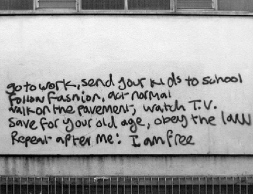A friend recently proposed an interesting exercise in hypothetical course design where one must select a single American novel for each decade of the 20th century to create a teachable arc for the century (and justify said choices). Given my own interest in genre, I figured I’d adopt/adapt it for utopian/dystopian fiction (dropping the “American” requirement) to see what kind of survey of the genre I might teach (and what works I’d be willing to drop per only having one choice per decade). The difficult part about conceptualizing this as an actual course is there is no way I would be able to teach this without starting with More’s Utopia and some other relevant earlier texts (Campanella? Bellamy and Morris? Wells? etc.) or doing a bunch of work up front introducing literary utopias via describing those works that lead up to what is really the dystopian turn in the genre that takes place at the beginning of the 20th century. Not that I couldn’t do the latter, but I’d much rather have students at least read More to begin.
That problem aside, I’ve still tried to follow a structure that makes sense for how an actual course might play out: works build on previously read works to allow for connections to be made, I begin with shorter texts rather than hitting students with something big and hard to start, and finish with less time-intensive texts so that students in the midst of final papers and finals prep would hopefully still make time for them.


 /dɪsˈtoʊpiə/[dis-toh-pee-uh]
/dɪsˈtoʊpiə/[dis-toh-pee-uh]
You must be logged in to post a comment.